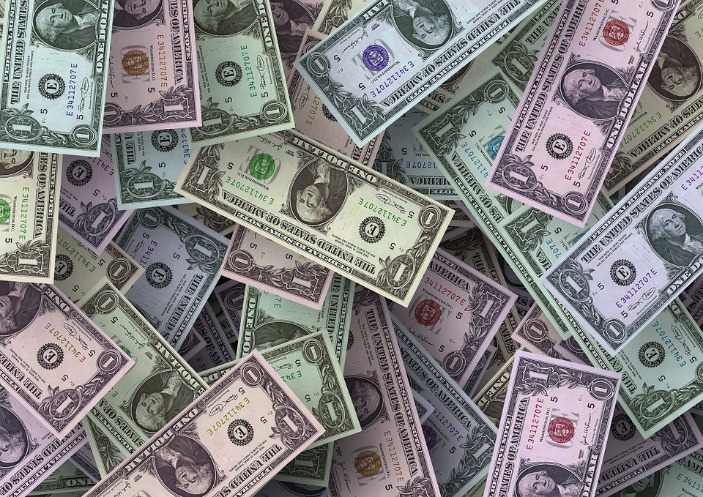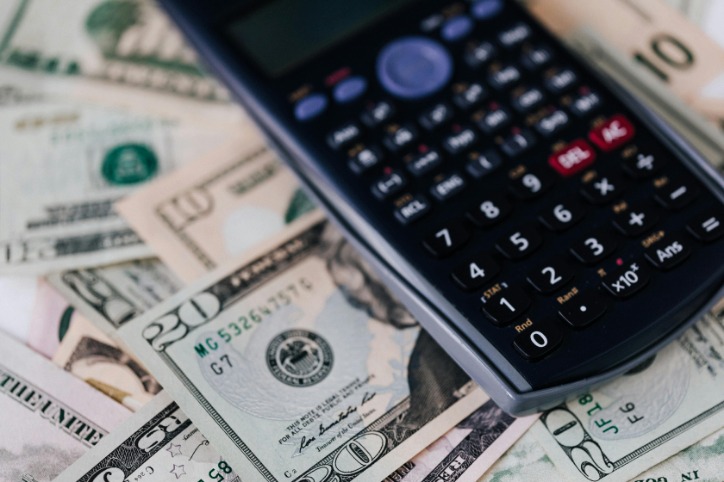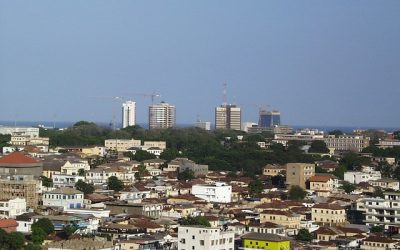Historical Overview of the Dollar Rate in Ghana
The dollar rate in Ghana has a complex history shaped by economic policies, external influences, and local market dynamics. Over the years, fluctuations in the exchange rate have reflected the country’s economic stability, inflation trends, and international trade relations. Understanding this historical overview provides valuable insights into Ghana’s evolving financial landscape and how it influences daily life, investments, and government policies.
Historical Trends and Fluctuations
The dollar rate in Ghana has experienced significant fluctuations over the decades, reflecting economic, political, and global influences. Historically, the Ghanaian economy faced periods of stability and volatility, impacted by factors such as inflation, government policies, and international trade dynamics. During the 1980s and early 1990s, the Ghanaian cedi faced depreciation which led to high exchange rate fluctuations against the US dollar. With economic reforms and stabilization policies introduced in the late 1990s and early 2000s, the dollar rate showed signs of relative stability, although occasional sharp increases persisted. The global economic crisis of 2008 and subsequent years saw the cedi weaken against the dollar, with the rate reaching record highs at certain points. More recently, Ghana has experienced economic challenges including inflation and foreign investment fluctuations, which have contributed to continued volatility in the dollar rate. Overall, the historical trends showcase a pattern of periods of both stability and rapid change driven by internal and external factors affecting Ghana’s currency value against the US dollar.
Key Events Influencing Exchange Rates
The dollar rate in Ghana has experienced significant fluctuations over the decades, influenced by various economic, political, and global factors. Understanding the key events that have shaped these exchange rates is essential for analyzing Ghana’s economic landscape and its relationship with international markets.
- Pre-Independence Era: During the colonial period, the British Pound Sterling was the dominant foreign currency in Ghana, with the exchange rate being relatively stable due to colonial economic policies.
- Post-Independence Currency Introduction (1957): Ghana adopted the Ghanaian Pound, which was later pegged to the British Pound, with exchange rates influenced by colonial monetary policies.
- Introduction of the Ghana Cedi (1965): The Ghanaian Cedi was introduced, replacing the Pound, leading to new exchange rate systems; initially, the Cedi was pegged to the British Pound but faced devaluation pressures.
- 1970s Economic Challenges: Ghana faced significant economic instability, including inflation and low productivity, which caused the Cedi to depreciate, impacting its exchange rate with the US dollar.
- Structural Adjustment Programs (1980s): Implemented by the IMF and World Bank, these reforms led to currency devaluations and liberalization of foreign exchange markets, influencing dollar rates.
- 2000s Currency Stabilization: Ghana’s government adopted policies aiming to stabilize the Cedi, but global factors like oil prices and US economic conditions still impacted the dollar rate.
- 2010s Dollar Rate Fluctuations: Increased inflows of remittances and foreign investment, alongside changes in commodity prices, led to periods of stability and volatility in the dollar exchange rate.
- Recent Developments (2020s): Global economic disruptions, including the COVID-19 pandemic, and local fiscal policies have caused notable fluctuations in the dollar rate, prompting Ghana to implement measures for exchange rate management.
Current State of the Dollar Rate in Ghana
The current dollar rate in Ghana remains a topic of significant interest among businesses, investors, and everyday consumers. With fluctuating economic conditions and currency pressures, the exchange rate between the US dollar and the Ghanaian cedi has experienced noticeable changes recently. Understanding these dynamics is crucial for making informed financial decisions in the Ghanaian economy.
Recent Exchange Rate Movements
The current state of the dollar rate in Ghana has shown significant fluctuations in recent times, reflecting ongoing economic adjustments and global market influences. Over the past few weeks, the exchange rate has experienced a period of volatility, with the Ghanaian cedi weakening against the US dollar due to inflationary pressures and foreign exchange shortages. Recent movements indicate a trend of gradual depreciation, impacting import costs and overall economic stability. Despite interventions by the Bank of Ghana to stabilize the cedi, the dollar remains a key factor influencing the nation’s financial landscape. Market analysts continue to monitor these changes closely, noting that external factors such as oil prices and remittance flows also play a crucial role in shaping the dollar’s rate in Ghana.
Comparison with Regional and Global Rates
The current dollar rate in Ghana remains relatively stable, with slight fluctuations observed over recent weeks. The Ghanaian cedi continues to face challenges due to inflation and external debt pressures, which influence the exchange rate against the US dollar. Compared to regional currencies, the dollar’s value in Ghana is notably higher than in neighboring West African countries such as Nigeria and Ivory Coast, reflecting Ghana’s economic conditions.
On a global scale, the US dollar maintains a strong position owing to its status as a reserve currency, with exchange rates fluctuating based on international market trends. Ghana’s dollar rate often mirrors broader global movements, but local economic factors contribute to its specific rate. Overall, the dollar remains a critical currency for international trade and investment in Ghana, impacting import costs and inflation rates.
Factors Influencing the Dollar Rate in Ghana
The dollar rate in Ghana is influenced by a variety of economic and external factors that can impact its fluctuation. Understanding these influences is crucial for businesses, investors, and policymakers as they navigate the country’s financial landscape. Key elements such as inflation rates, balance of trade, political stability, and global economic trends play a significant role in determining the value of the dollar relative to the Ghanaian cedi.
Economic Indicators
The dollar rate in Ghana is significantly influenced by a variety of economic indicators, which reflect the country’s economic health and stability. Key among these are inflation rates, foreign exchange reserves, and balance of payments. Rising inflation can lead to a depreciation of the local currency against the dollar, as it erodes purchasing power and impacts investor confidence. Foreign exchange reserves are crucial; higher reserves typically strengthen the national currency by providing a buffer for currency stabilization. The balance of payments, which includes exports and imports, also plays a vital role—trade deficits often result in increased demand for foreign currencies like the dollar, thereby driving up its rate. Additionally, economic growth rates, interest rates set by the central bank, and fiscal policies can influence investor sentiment and currency value. Overall, these indicators collectively determine the fluctuations of the dollar rate in Ghana and reflect the country’s economic trajectory.
Political Stability and Policies
Political stability and policies play a significant role in determining the dollar rate in Ghana. A stable political environment encourages foreign investment and boosts investor confidence, which can lead to a stronger Ghanaian cedi relative to the dollar. Conversely, political turmoil or uncertainty can cause investors to withdraw their capital, increasing demand for foreign currencies like the dollar and causing the cedi to depreciate. Additionally, government policies on fiscal management, foreign exchange regulations, and economic reforms directly influence currency exchange rates. Sound economic policies that promote growth and stability tend to strengthen the local currency, while inconsistent or restrictive policies can lead to volatility in the dollar rate. Overall, the political landscape and policy decisions are key factors that shape the dynamics of the dollar rate in Ghana.
Foreign Investment and Remittances
The dollar rate in Ghana is influenced by several key factors, including foreign investment and remittances. Foreign investment plays a significant role in determining the demand for the US dollar, as investors need dollars for transactions and repatriation of profits. When foreign direct investment increases, it often leads to higher demand for dollars, which can cause the local currency to depreciate against the dollar. Conversely, reduced foreign investment can lessen dollar demand, potentially stabilizing or strengthening the Ghanaian cedi. Remittances from Ghanaians living abroad also impact the dollar rate; large inflows of remittances boost dollar supply in the country, which can help stabilize or strengthen the local currency. However, fluctuations in remittance volumes, influenced by economic conditions in recipient countries, can affect the dollar rate in Ghana. Overall, a balance between foreign investment inflows and remittance levels plays a crucial role in shaping the dollar rate in Ghana, along with other factors like government policies, inflation, and global economic trends.
Commodity Prices and Export Earnings
The dollar rate in Ghana is heavily influenced by various factors, including commodity prices and export earnings. As a country that relies heavily on the export of commodities such as gold, cocoa, and oil, fluctuations in global commodity prices directly impact Ghana’s foreign exchange reserves and, consequently, the exchange rate. When commodity prices rise, Ghana’s export earnings increase, often leading to a stronger local currency against the dollar. Conversely, a decline in commodity prices can reduce export revenues, putting pressure on the Ghanaian cedi and increasing the dollar rate. Additionally, global market dynamics, inflation rates, and monetary policies also play significant roles in shaping the dollar rate. Overall, the interplay of these factors determines the stability and movement of the dollar rate in Ghana, affecting the economy and exchange transactions across the nation.
Impact of the Dollar Rate on Ghana’s Economy
The dollar rate in Ghana plays a crucial role in shaping the country’s economic stability and growth. Fluctuations in the exchange rate can significantly influence inflation, import and export dynamics, and overall investor confidence. Understanding the impact of the dollar rate is essential for policymakers, businesses, and consumers as they navigate the challenges and opportunities within Ghana’s evolving economic landscape.
Inflation and Purchasing Power
The dollar rate in Ghana has a significant impact on the country’s economy, influencing inflation levels and the overall purchasing power of its citizens. When the dollar value rises against the Ghanaian cedi, imported goods become more expensive, leading to higher costs for consumers and businesses alike. This often results in increased inflation, reducing the real value of money and diminishing people’s ability to buy goods and services. Conversely, a stable or declining dollar rate can help control inflation and support the stability of the cedi, thereby strengthening consumers’ purchasing power. The fluctuations in the dollar rate also affect Ghana’s balance of trade and foreign reserves, further shaping economic growth and stability. Managing exchange rate volatility is crucial for maintaining economic stability, controlling inflation, and ensuring that the purchasing power of Ghanaians remains as robust as possible amidst changing global currency dynamics.
Import and Export Dynamics

The dollar rate in Ghana significantly influences the country’s economy, particularly affecting import and export dynamics. When the dollar rate rises, the cost of imported goods increases, leading to higher prices for commodities such as machinery, fuel, and raw materials. This can contribute to inflation and reduce consumers’ purchasing power. Conversely, a depreciating dollar rate may boost Ghana’s exports by making products more competitively priced internationally, thereby supporting local industries and improving trade balances. However, fluctuations in the dollar rate create economic uncertainty, impacting business investments and planning. The country’s reliance on dollar-denominated transactions makes it vital to monitor and manage exchange rate stability to foster sustainable economic growth and maintain positive trade relations. Ultimately, the dollar rate acts as a critical factor shaping Ghana’s economic landscape, influencing both inflation and the competitiveness of its export sector.
Price of Goods and Services
The dollar rate in Ghana significantly influences the country’s economy, affecting the overall stability and growth prospects. When the dollar appreciates against the Ghanaian cedi, the cost of imported goods and services rises, leading to higher prices for consumers. This can contribute to inflation, reducing the purchasing power of ordinary Ghanaians. Conversely, a weaker dollar can make imports cheaper, potentially lowering prices and easing inflationary pressures. The fluctuation of the dollar rate also impacts export competitiveness, as Ghana’s export products become more expensive or cheaper in foreign markets. Overall, stability in the dollar rate is crucial for maintaining economic balance, controlling inflation, and ensuring affordable prices for essential goods and services in Ghana.
Government and Central Bank Interventions
Government and central bank interventions play a crucial role in influencing the dollar rate in Ghana. These interventions are strategies employed to stabilize the national currency, manage inflation, and promote economic stability. Understanding how such measures impact the exchange rate is essential for investors, policymakers, and citizens navigating Ghana’s economic landscape.

Monetary Policies and Exchange Rate Regimes
The dollar rate in Ghana is significantly influenced by government and central bank interventions, which aim to stabilize the local currency and control inflation. These interventions often involve regulatory measures such as foreign exchange controls and direct market operations to manage the supply and demand for foreign currencies, especially the US dollar. Additionally, monetary policies implemented by the Bank of Ghana, including adjustments to interest rates and reserve requirements, play a crucial role in shaping exchange rate movements. Ghana’s exchange rate regime has traditionally been managed with a flexible approach, allowing for some degree of exchange rate fluctuation while intervening when necessary to prevent excessive volatility. Effective coordination of monetary policies and currency management strategies is essential to maintaining a stable dollar rate, fostering investor confidence, and supporting economic growth in Ghana.
Forex Reserves and Intervention Strategies
The dollar rate in Ghana is heavily influenced by government and central bank interventions as well as the country’s forex reserves. These interventions aim to stabilize the local currency, the Ghanaian cedi, and maintain economic stability amidst fluctuating global currency markets.
- Government and central banks often intervene in the foreign exchange market by buying or selling foreign currencies, including the US dollar, to influence exchange rates.
- Forex reserves are crucial assets that enable a country to manage its currency stability by providing the necessary foreign currency to support interventions.
- When the dollar rate rises sharply, the Bank of Ghana may intervene by selling dollars from its reserves to prevent excessive depreciation of the cedi.
- Strategies such as implementing monetary policies, setting exchange rate bands, or using direct interventions are common to control the dollar rate in Ghana.
- Maintaining adequate forex reserves is essential for avoiding a currency crisis and ensuring the country can meet its international financial obligations.
Comparison with Other Currency Rates in Ghana
The dollar rate in Ghana plays a significant role in the country’s economic transactions and international trade. Comparing the USD exchange rate with other currencies helps investors and travelers understand the relative strength of Ghanaian cedi against global currencies. Such comparisons provide insights into economic stability, currency fluctuations, and the overall financial environment in Ghana.
Ghanaian Cedi Against Major Currencies
The dollar rate in Ghana varies when compared to other major currencies, reflecting the country’s economic conditions and foreign exchange market trends. The Ghanaian Cedi typically shows different levels of strength or weakness against currencies such as the Euro, British Pound, and Japanese Yen. When comparing the Cedi to the US dollar, fluctuations are influenced by factors like inflation rates, trade balances, and government policies, which often result in the Cedi being weaker or stronger relative to these currencies. Understanding how the Ghanaian Cedi performs against a basket of major currencies provides insight into Ghana’s economic stability and investment climate. Such comparisons help businesses, investors, and travelers make informed decisions in navigating currency exchanges and planning financial strategies in Ghana.
USD to Cedi Trends Over Time
The USD to Cedi exchange rate in Ghana has experienced significant fluctuations over time, reflecting both local economic conditions and global currency trends. Historically, the Ghanaian Cedi has depreciated against the US dollar due to inflation, external debt, and economic policies. Comparing the Cedi’s performance with other foreign currencies such as the Euro or British Pound reveals that the US dollar has remained a dominant benchmark, often indicating broader economic stability or instability in Ghana. Over the years, the USD to Cedi trend has shown periods of rapid depreciation followed by stabilization efforts, highlighting the currency’s sensitivity to international markets and Ghana’s economic strategies.
Future Outlook and Predictions
The future outlook for the dollar rate in Ghana remains a topic of significant interest for economists, investors, and everyday citizens. As global economic trends and local financial policies evolve, fluctuations in the dollar’s value against the Ghanaian cedi are expected to influence the country’s economy. Predictions suggest that careful monitoring of economic indicators and government interventions will play a crucial role in shaping the dollar rate’s trajectory in the coming months.
Expert Analyses and Forecasts
The future outlook for the dollar rate in Ghana is expected to be influenced by a combination of domestic economic policies, international market trends, and geopolitical developments. Experts predict that if Ghana continues to implement measures to stabilize its economy and manage inflation, the dollar rate may experience relative stability or a gradual decrease. Conversely, any significant external shocks or disruptions in global markets could lead to increased volatility.
Analyses by financial institutions and economic forecasters indicate that the dollar rate in Ghana could trend upwards if external borrowing or foreign debt levels rise, affecting the country’s foreign exchange reserves. Additionally, forecasts suggest that currency fluctuations will remain a challenge as Ghana seeks to balance inflation control with attractive investment prospects, which could impact dollar rates in the short to medium term.
Overall, specialists recommend monitoring global currency movements, commodity prices, and local economic reforms to better understand future dollar rate trajectories in Ghana. Proactive policy adjustments and external economic conditions will be key factors in shaping the currency’s performance in the upcoming years.
Potential Influences on Future Rates
The future outlook of the dollar rate in Ghana is expected to be influenced by a combination of domestic and international economic factors. As the Ghanaian economy continues to develop and adapt to global market trends, fluctuations in the dollar rate may become more pronounced, especially amid fluctuating commodity prices and foreign investment levels. Additionally, policies implemented by the Bank of Ghana and government measures aimed at stabilizing the local currency will play a crucial role in shaping future trends.
Potential influences on future dollar rates include changes in global interest rates, inflation rates in both the United States and Ghana, and geopolitical events that impact investor confidence. The performance of major foreign exchange reserves and trade balances will also significantly affect exchange rate movements. If the US dollar strengthens globally due to economic or political factors, Ghana’s dollar rate may see upward pressure, impacting costs for imports and overall economic stability.
Moreover, external shocks such as commodity price shocks—particularly in gold and cocoa—can influence Ghana’s foreign exchange earnings and consequently affect the dollar rate. Technological advancements, financial market reforms, and shifts in foreign direct investment flows will further shape the future landscape of dollar rates in Ghana. Overall, a cautious approach and proactive policy responses will be essential in managing currency stability and mitigating potential volatility in the years ahead.





0 Comments